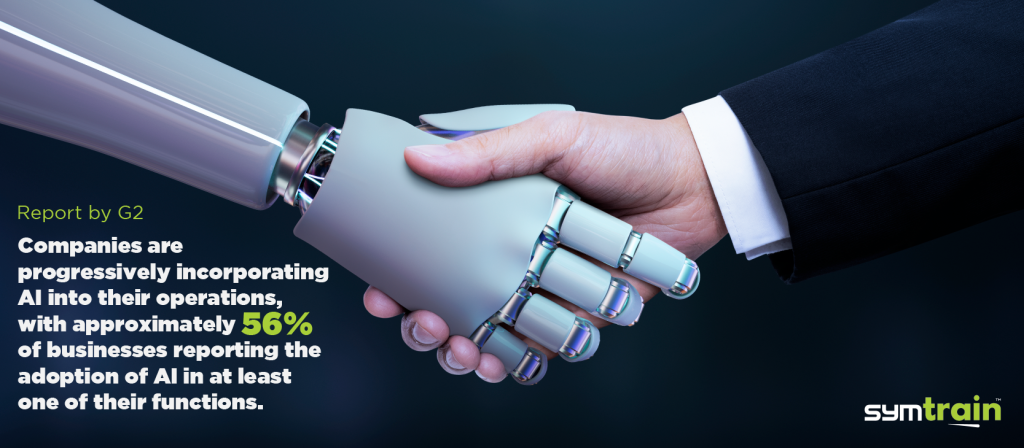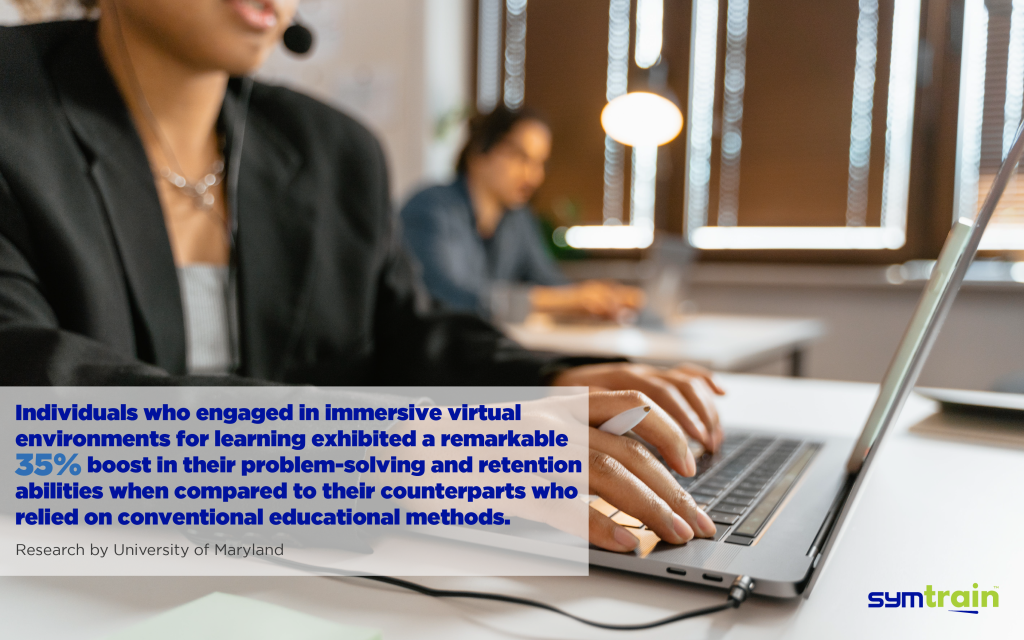The first SymTrain Tips and Tricks session, conducted by Jamie Leckband, our Customer Success Manager, offered a detailed view into the innovative application of AI in the contact center domain. This session centered on the utilization of SymTrain’s GenAI feature, a pivotal tool for dynamically enhancing the creation of training and coaching content.
The GenAI Feature: A Game-Changer in Customization
A key focus of the session was the newest GenAI feature within SymTrain’s platform. This innovative tool allows for the customization of training scenarios, equipping agents to handle a diverse array of customer interactions. GenAI’s adaptability not only prepares agents for various real-world scenarios but also promotes a tailored and impactful learning journey.
The Key Insights
- Script Delivery and Adaptation: The importance of evolving beyond simple script recitation was underscored. Mastery over the conversation’s structure can significantly boost an agent’s confidence and their ability to manage actual customer interactions.
- Concentration in Communication: The need for complete engagement in conversations was also highlighted. Active listening and empathy were identified as critical elements for genuine customer interactions, skills that agents can develop through regular practice with SymTrain’s features.
- Understanding Energy in Interactions: An insightful takeaway was the discussed perspective on ‘energy’ in communication. Leckband clarified that it’s not about the extremities of energy levels, but rather about the appropriate sense of urgency, which should be aligned with the customer’s emotional state.
- Tailored Content Generation: One of the most significant advantages of content creation with generative AI is its ability to produce highly tailored content that caters to diverse learning styles and needs. Generative AI enables the creation of customized training modules. This personalized approach ensures that each trainee receives content that is most effective for their unique learning journey, leading to more efficient and impactful training outcomes.
- Dynamic Scenario Creation: Generative AI excels in creating dynamic and realistic scenarios that closely mimic real-world situations. This feature is particularly beneficial for training in fields where experiential learning is crucial, such as customer service or emergency response. By generating a wide array of scenarios, trainees can be exposed to numerous potential challenges they might face, equipping them with the practical skills and confidence needed to handle complex situations.
The Implications for the Contact Center Industry
The session demonstrated how tools like GenAI are transforming the contact center industry top to bottom. By enabling personalized training experiences and fostering essential communication skills, such tools are preparing agents to meet the evolving demands of customer service. This progression not only enhances the quality of customer interactions but also sets a new standard in the industry for agent training and customer satisfaction.
Watch the Session
If you missed the opportunity to attend our Tips and Tricks session, worry not! We invite you to experience the full breadth of insights shared during the session by watching the recorded video. It’s a resourceful watch for anyone interested in understanding the nuances of AI-powered training in the contact center industry. Whether you’re a seasoned professional or new to the field, the session offers valuable perspectives and actionable strategies.






































